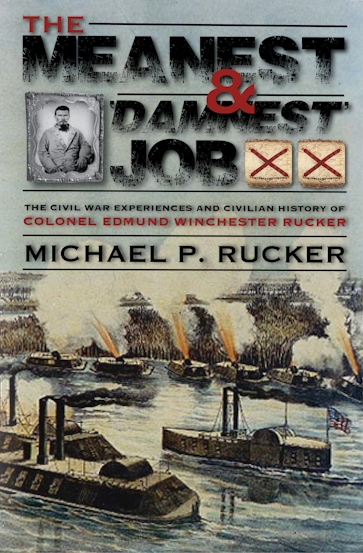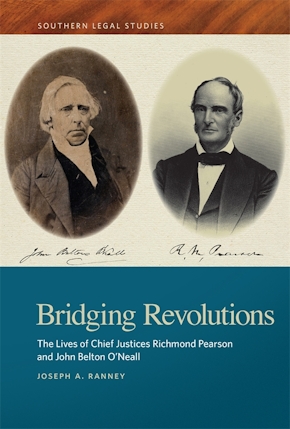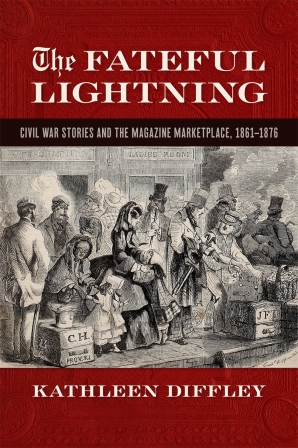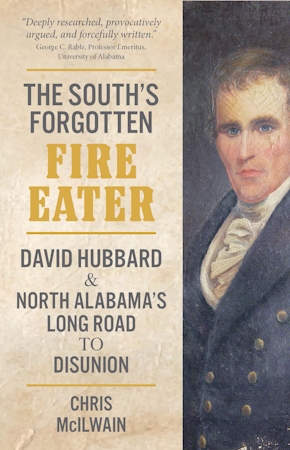Most Civil War histories focus on the performance of top-level generals. However, it was the individual officers below them who actually led the troops to enact the orders. Some of these were remarkably effective. One such officer was Edmund Winchester Rucker. He was a force to be reckoned with, both during the Civil War and in his post-war business ventures. He was courageous, tough and resourceful, and achieved significant results in every assignment. During the campaign by the United States Army to capture the upper Mississippi River, Rucker and his faithful Confederate artillerists, with only three operable cannons, held off the entire Federal fleet which possessed 105 heavy guns. Later, in East Tennessee, Rucker’s duties included punishing saboteurs and conscripting unwilling local citizens into the Confederate Army. He described these assignments as: “The meanest and damnest [sic] duty a soldier had to perform.” Following the battles for Chattanooga, he served with General Nathan Bedford Forrest as a cavalry brigade commander, earning high merits for his performance. Rucker’s leadership was a major factor in the Confederate victory in the Battle of Brices Cross Roads, which has been called “History’s Greatest Cavalry Battle.” Subsequent to the Battle of Nashville, Rucker was wounded and captured; although his left arm was amputated, this did not impede his future achievements. After the war, Colonel Rucker and General Forrest became business partners in a railroad-building project. Rucker did well from this venture and became one of the wealthiest early entrepreneurs in Birmingham. In recognition of his many accomplishments, Fort Rucker Alabama was named in his honor. This first biography on his life examines, at a fast-moving pace, the military and business accomplishments of this outstanding leader who left his mark on both the Civil War and Southern industry of the time.
This book accurately and dramatically covers the amazing and varied exploits of Confederate Colonel Edmund Winchester Rucker during the Civil War and his post-war industrial accomplishments in Birmingham. At a fast-moving pace, it tells the military and business accomplishments of an outstanding leader who left his mark on both the Civil War and Southern industry of the time.
—Ross Massey, Middle Tennessee Civil War historian
The Civil War community has long needed a book on Edmund Winchester Rucker, and at last it has one. Aside from some very brief biographies, little has been written about this outstanding Confederate officer, excepting his dashing charges at Brice's Crossroads. But this work finally introduces us to the man, who was a Tennessee-born civil engineer-turned-soldier. During the Civil War Rucker earned a reputation as a bulldog fighter even before his assignment to Bedford Forrest's cavalry corps. In fact, his reputation was such that 77 years after the end of the Civil War the U.S. Army created Fort Rucker, which serves today as an aviation training facility in southeast Alabama. And don't let the author's surname deceive you. Mike Rucker is the first to admit that his family connection to Edmund Winchester is quite distant, so he tackles the subject objectively. In doing so, the book covers the man's life extensively, and in a most readable style, while discussing the events that influenced Edmund Rucker's calls to duty. Despite his many combat wounds, and even a stint as a POW at the infamous Johnson's Island on Lake Erie, Edmund Rucker refused to be beaten down, and he became one of the post-war City of Birmingham's most prominent citizens. Any Civil War enthusiast will enjoy this work. Any Civil War library will be improved by its addition.
—Brig. Gen. Parker Hills, Ret.
During the 1880s, Edmund Winchester Rucker, prominent Birmingham banker and former Confederate cavalry officer, played a significant role in transforming the Sloss Furnace Company into the newly formed chartered Sloss Iron and Steel Company. Although a major player in the development of Alabama’s "Magic City," Rucker's contributions to early Birmingham have been largely overlooked. Now, a new book brings to life his participation in the Civil War and his involvement in post-war Alabama railroad construction and Birmingham industry.
The Meanest and "Damnest" Job is a lively account, painstakingly researched, that recovers for a new generation of readers the fascinating story of Rucker's life. The book serves as an interesting character study, but also usefully fills in the blanks of our understanding about a lesser-known Civil War leader.
—Karen R. Utz, Curator and Historian, Sloss Furnaces National Historic Landmark



